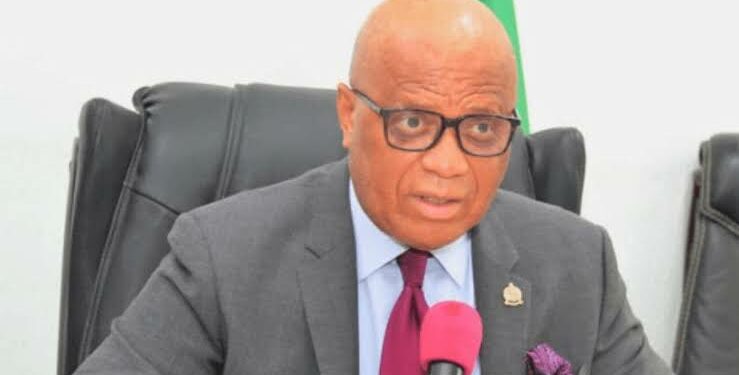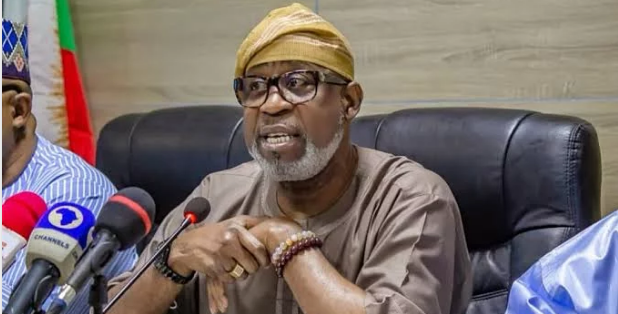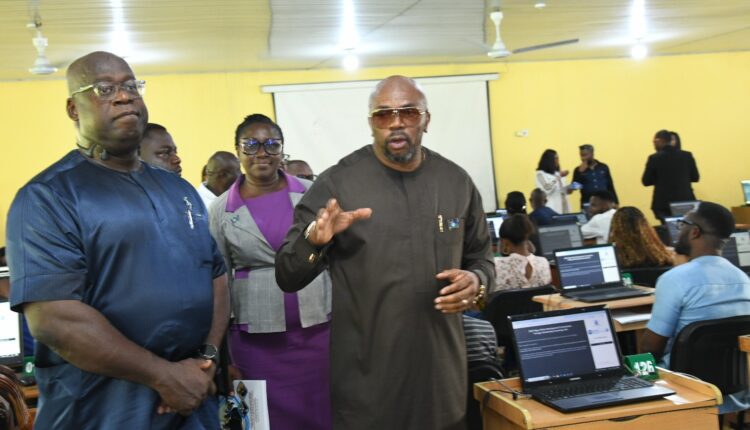By Ogenyi Ogenyi,Uyo
Experts and other stakeholders in the maritime sector were unanimous in their commendation of the commitment of Governor Umo Eno towards the realisation of the Ibom Deep Seaport and the larger Ibom Industrial City project.
The experts who made their feelings known at a Maritime Trade and Logistics Sensitisation Workshop weekend in Uyo said the passion which Eno has brought to bear on the project would accelerate the socio-economic development of the state.
State Commissioner for Special Duties and Ibom Deep Seaport, Comrade Ini Ememobong, noted that while the administration has diligently worked to bring the twin projects to reality, it was important to ensure that Akwa Ibom people are prepared and well-positioned to be active players in the maritime sector.
“Currently, Lagos and Rivers States are the players in the maritime sector because of their seaports. With the commitment of His Excellency Governor Umo Eno, Akwa Ibom is set to join this league through the construction of Ibom Deep Seaport and Ibom Industrial City.
“While the State Government is working to bring Ibom Deep Seaport and Ibom Industrial City to reality, Akwa Ibom should have a pool of highly skilled manpower for employment at the port and the industries that will be set up in IIC. This is the essence of today’s sensitisation workshop.” He explained.
The commissioner further noted that the sensitisation was organised to enable participants to gain deeper insights into the maritime and blue economic sector, assess the lucrative nature and viability of this sector, and see how they can be a part of this industry.
Speaking on maritime logistics, the President of Brightflow Conglomerate, Dr Aniefiok Iton, noted that the maritime sector held immense potential, and that if harnessed properly, its impact could surpass that of oil exploration, adding that the maritime industry is a vital component of global trade, which shipping plays a critical role in the movement of people, commodities, cargo, materials, goods and services across international borders.
“Harnessing the economic potentials in the maritime industry involves leveraging its diverse facets, including blue economy initiatives, infrastructure development and sustainable practices.
” This includes maximising the benefits of maritime transport, fisheries and aquaculture, tourism and renewable energy. Countries, regions and communities can unlock substantial economic potential through leverage in this sector.” Iton said.
She notes that it was important to recognise that every sector has its own language and as such, gaining insights and knowledge will help in navigating the sector effectively, disclosed that the objective of the workshop was to develop skills for economic diversification in the maritime industry.
On his part, the Rector, Marine and Oceans Academy, Nigeria, Dr. Kingsley Ekwere, stressed that, “there is a need for skills acquisition not just onshore but in the waterways. There is no greater time to look into this than now that the Ibom Deep Seaport is about to emerge for West Africa. Whatever anybody can do, we can do also, and we should be very interested in skills acquisition to function once the Ibom Deep Seaport is birthed.”
Also speaking, a lecturer at Maritime Academy, Nigeria, Dr. Friday Ufia, noted that while maritime trade was the exchange of goods and services across the oceans and seas, the logistics was about customer service, disclosing that there are short courses at the Maritime Academy to equip people in the area to be part of the Ibom Deep Seaport.
In his presentation, the Director of Projects, Technical Committee on Ibom Deep Seaport, Prof. Akaninyene Ekong, said that maritime activities are open to professionals from all fields, offering vast opportunities across sectors.
Ekong said it was encouraging to see that, at the national level, bold steps have been taken to elevate the marine and blue economy, as evident in the policy brief presented at the Federal Executive Council in May this year.
According to him, Ibom Deep Seaport and Ibom Industrial City werenot just standalone projects, but pivotal economic anchors, with their impact extending across the host local government areas into the surrounding region.
“The seaport and land-based infrastructure will drive industrialisation and activate the full potential of the agri-estates, which are already accessible and infrastructure-ready. With this development, all private estates will eventually integrate into the industrial city zone.” He said.





